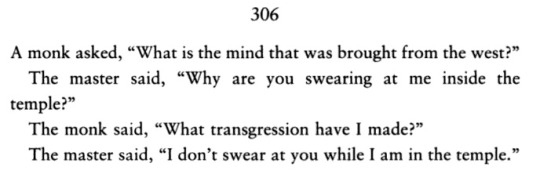Text
List of shibboleth names
by which the privileged judge their inferiors
A
Abbe Suger (French pronunciation: syoo-zheh, British: soo-gehr)
Chinua Achebe (chin-oo-ah ah-chay-bae)
Chimamanda Ngozi Adichie (chim-ah-man-da nnnn-go-zeh ah-dee-che)
James Agee (a-jee)
Anna Akhmatova (onna ock-mah-taugh-vah)
Louis Althusser (lou-wee al-too-sair)
Jerzy Andrzejewski (yer-zhay ahn-zhay-ev-ski)
Roger Angell (angel)
Jean Anouilh (~ahn’oo-ee)
Diane Arbus (dee-ann)
Hannah Arendt (hahn-ah ahr-ent)
Martha Argerich (mar-tah herr-each)
Eugène Atget (oo-zhenne at-zhey)
Augustine of Hippo (aw-gus-tin)
Autechre (aw-tekk-er)
Richard Ayoade (eye-oh-wah-dee)
B
Angelo Badalamenti (bottle-ah-menti)
Walter Bagehot (badget)
Balliol College (bay-lee-uhl)
Donald/Frederick Barthelme (barth-uhl-me)
Karl Barth (bart)
Roland Barthes (bart)
Tom Beauchamp (beachum)
Walter Benjamin (ben-yameen)
John Berger (berdger)
Bishop Berkeley (barkley)
Hans Bethe (beta)
John Betjeman (betch-uh-mun)
Joseph Beuys (boyz)
Hieronymus Bosch (Flemish pronunciation: heer-rone-nee-mohse boss)
Tadeusz Borowski (tah-de-yoosh borr-off-ski)
Anthony Boucher (rhymes with voucher)
Tycho Brahe (Danish pronunciation: too-ghoh brahhh)
Marcel Breuer (broy-er)
Broad Art Museum (brode)
Hermann Broch (~hair-monn brohhh)
Burgundy Street, New Orleans (burr-gun-dee)
Steve Buscemi (boo-semm-ee)
Bowdoin College (boh-din)
C
Gonville and Caius College (keys)
Menzies Campbell (ming-iss)
Thomas Carew (carey)
Vija Celmins (vee-yah tell-midge)
Michael Chabon (shay-bonn)
Jan Czochralski (yann choh-h’ral-ski)
J.C. Chandor (shann-door)
Dan Chaon (shawn)
Chyron (kai-rawn or kai-run)
Cimabue (chee-ma-boo-ee)
Karel Čapek (kah-rell chap-eck)
Michael Cimino (chee-me-noh)
Emil Cioran (chore-ahn)
Ta-Nehisi Coates (tah-nuh-hah-see)
Alexander/Andrew/Patrick Cockburn (coburn)
Paulo Coelho (~pow-lu kuh-whey.l-you.)1
J.M. Coetzee (koot-see)
Robert Campin (com-pin)
William Cowper (cooper)
Cré na Cille, Máirtín Ó Cadhain book (~kreh neh kill-eh)
Mihaly Csikszentmihalyi (me-high cheek-sent-me-high)
Countee Cullen (cown-tay)
Marie Skłodowska-Curie (skwoh-doaf-ska)
Alfonso/Jonás/Carlo Cuarón (al-fone-so/ho-nas kwah-roan)
Holger Czukay (hole-gerr shoe-kai)
D
Gerard David (Flemish pronunciation: ~hhheer-ahrd dahh-fidd)
The Dalles, Oregon (the dolls)
Guy Debord (ghee du-borrh)
Louis De Broglie (duh broy)
Giorgio De Chirico (Italian pronunciation: ~dee kee-ree-koh)
Richard Dedekind (between day-dah-kin and day-dah-kint)
Wilhelm Dilthey (dill-tai)
Alfred Döblin (deu-bleen)
Don Juan, Byron character (jew-un)
Gerrit/Gerard Dou (dow)
W.E.B. DuBois (duh-boyz)
Andre Dubus (duh-byoose)
E
Chiwetel Ejiofor (choo-we-tell edge-ee-oh-for)
Cary Elwes (ell-wiss)
Paul Erdős (~pal ehr-deush)
John Scotus Eriugena (era-jee-nah)
Leonhard Euler (oiler)
F
Nuruddin Farah (Somali pronunciation: ~nour-oo-deen farr-ah)
Colm Feore (column fury)
Ferdydurke (fair-deh-dure-kuh)
Paul Feyerabend (fire-ah-bent)
Johann Gottlieb Fichte (feesh-tuh)3
Ralph/Ranulph/Sophie/Joseph/Magnus/Martha Fiennes (rayf finezzzzzzzzzzzzz)
Gustave Flaubert (flow-bear)
William Foege (fay-ghee)
Lee Fang (fong)
Michel Foucault (~foo-coh)
Gottlob Frege (got-lobe free-geh)
James Frey (fry)
Fritiof Fryxell (freet-joff frix-ell)
G
Gallaudet University (gal-uh-debt)
Mary Gauthier (goh-shay)
George Gamow (gamm-awve)
Clifford Geertz (gurtz)
Alberto Giacometti (Swiss pronunciation: yah-coh-mett-ee)2
André Gide (zheed)
Giotto (jhott-oh)
H.R. Giger (ghee-guh)
Johann Wolfgang von Goethe (~ger-tuh)
Nikolai Gogol (goggle)
Witold Gombrowicz (vee-told gomm-broh-vitch)
Jan Gossaert (~yann ho-sight) aka ‘Mabuse’ (mah-buu-zuh)
Philip Gourevitch (guh-ray-vitch)
Antonio Gramsci (gromm-she)
Matt Groening (graining)
Alexander Grothendieck (groat-enn-deek)
David Guetta (gay-tah)
H
Vaclav Havel (vott-slav hah-vell)
Michael Haneke (hanukkah)
Margaret H’Doubler (dough-blur)
Seamus Heaney (shay-muss hee-knee)
Aleksandar Hemon (between heh-monn and heh-mown)
Heorot (hay-uh-rot)
Zbigniew Herbert (z’beeg-nyeff herr-behrt)
John Hersey (hearse-ey)
Hesiod (he-see-uhd)
Hermann Hesse (~hair-monn heh-seh)
Guy Hocquenghem (ghee ock-en-g’yem)
homo sacer, Agamben concept (Italian pronunciation: oh-moh satch-air)
Houston Street, Manhattan (house-ton)
Joris-Karl Huysmans (zhour-ris karl weese-moss)4
Bohumil Hrabal (boh-who-meal h’rah-ball)
Alfred Hrdlička (German pronunciation: ~hairt-litch-kah)
I
Iceni (aye-kay-nee)
Jean-Auguste-Dominique Ingres (angh)
Eugène Ionesco (Romanian pronunciation: ~yoh-ness-koh)
Luce Irigaray (loose ear-ee-garr-eh)
J
Roman Jakobson (jacob-son)
Jacques, Shakespeare character (jay-kwiss)
Erica Jong (zhong)
Seu Jorge (~sewe zhawzhe)1
Carl Jung (yoong)
K
Frigyes Karinthy (free-gesh car-inn-tee)
Keble College (keeble)
Kelis Rogers (kuh-leece)
Imre Kertész (imm-reh kare-tace)
John Maynard Keynes (kanes)
Omar Khayyam (high-yahm)
Krzysztof Kieślowski (krish-toff keesh-loff-skee)
Q'orianka/Xihuaru Kilcher (core-i-an-ka/see-wahr-oo)
Danilo Kiš (dann-eel-oh keesh)
Paul Klee (powell clay)
Stephen Cole Kleene (cleany)
Phil Klay (kligh)
Karl Ove Knausgård (Norwegian pronunciation: ~kahl oo-veh kuh-nauss-gahd)
Zoltán Kodály (zohwl-tahn koh-die)
Sarah Koenig (kay-nig)
Alexandre Kojève (koh-zhevv)
Jiří Kolář (year-ee collage)
Tadeusz Konwicki (tah-de-yoosh konn-vitz-ski)
Jerzy Kosiński (yer-zhay koh-shin-ski)
Alexandre Koyré (kwah-ray)
Saul Kripke (crip-key)
Thomas Kuhn (coon)
Milan Kundera (Czech pronunciation: mill-ahn koon-der-uh)
L
Carl Laemmle (lemm-lee)
Dorothea Lange (lang)
Henri Lefebvre (luh-fevv-ruh)
Stanisław Lem (stan-ni-swaf lemm)
Jonathan Lethem (leeth-um)
Jared Leto (let -oh)
Primo Levi (leh-vee)
Marina Lewycka (leh-vitz-kah)
Sophus Lie / Lie Algebra (lee)
Mario Vargas Llosa (yoh-sah)
Peter Lorre (laura)
John Lukacs (Hungarian pronunciation: loo-katch but Americanized to lucas)
Jan Łukasiewicz (yann wu-kah-shey-vitch)
M
Magdalen College, Oxford/Cambridge (mawd-lin)
Mannes College of Music (mannis)
Quentin Matsys/Quinten Matsijs (Flemish pronunciation: kvinn-tin mott-sayse)
Somerset Maugham (mawm)
Kazimir Malevich (may-lay-vich)
Thomas Mann (toe-mahs mahn)
Don Marquis (mar-kwiss)
Olivier Messiaen (oh-leev-yay meh-syonh)
Joel Meyerowitz (my-yer-uh-wits)
John Michell (mitchell)
Czesław Miłosz (chess-waff me-woahsh)
Joan Miró (zhwamn me-roh)
László Moholy-Nagy (~lass-low moh-holy noidge-eh)
Robert Moog (mogue)
George Mosse (mossy)
Sławomir Mrożek (swah-voh-meer m’roh-zhek)
Ron Mueck (myoo-ick)
Harry Mulisch (mool-ish)
Edvard Munch (ed-vart moonk)
Robert Musil (moo-zeal/moo-seal)
Eadweard Muybridge (edward my-bridge)
N
Nacogdoches, Texas (nack-uh-dough-chis)
Natchitoches, Louisiana (nack-uh-tush)
Otto Neurath (noi-raht)
Bill Nighy (nye)
Anaïs Nin (ah-nayh-ees ninn)
Emmy Noether (neur-tuh)
Cees Nooteboom (sayze note-uh-bome)
Lupita Nyong'o (~nnnnn yong-oh)
O
Obergefell v. Hodges (oh-burr-geh-fell)
Máirtín Ó Cadhain (marr-teen oh kai-un)
Adepero Oduye (add-uh-pair-oh oh-doo-yay)
Jenny Offill (oh-full)
Claes Oldenburg (kloss)
Michael Ondaatje (awn-datch-ee)
The River Ouse (ooze)
David Oyelowo (oh-yell-uh-whoah)
P
Chuck Palahniuk (paul-uh-nik)
Octavio Paz (Mexican Spanish: pahss)
Wolfgang Pauli (pow-lee)
Charles Sanders Peirce (purse)
Krzysztof Penderecki (creesh-toff pen-duh-ret-ski)
Samuel Pepys (peeps)
Jodi Picoult (pee-coe)
Max Planck (plonk)
Plotinus (ploh-tine-us)
Anthony Powell (po-uhl)
John Cowper Powys (cooper poh-iss)
Principia Mathematica (prin-kipp-ee-yah)
Annie Proulx (proo)
Marcel Proust (proost)
Joseph Pulitzer (puh-litz-ur)
Q
Qatar (cutter/gutter)5
Quinnipiac University (kwinn-uh-pea-ack)
R
Ayn Rand (well-fare recipient)
Sławomir Rawicz (swah-voh-meer rahh-vitch)
Satyajit Ray (Bengali pronunciation: ~shut-uh-jeet rye)
Steve Reich (raish)
Tom Regan (ray-gun)
ricercar (Italian pronunciation: ~reach-ur-car)
Rainer Maria Rilke (rhine-er mahr-ee-a reel-kuh)
Nicolas Roeg (rogue)
Theodore Roethke (ret-key)
Wilhelm Conrad Röntgen/Roentgen (vill-helm rhont-gn)
Klaus Roth (roath)
Mary Ruefle (roo-full)
Ed Ruscha (roo-shay)
S
Edward Said (sigh-eed)
Antoine de Saint-Exupéry (sanh-eks-oo-pear-ee)
Luc Sante (sahnt)
Leonardo Sciascia (shah-shah)
Schlumberger (slumber-zhay)
Bruno Schulz (schooltz)
Martin Scorsese (score-sess-ee)
Henry Scrope, Shakespeare character (scroop)
W.G. Sebald (zay-bald)
Chloë Sevigny (sevv-un-ee)
Choire Sicha (corey seeka)
Charles Simić (Serbian pronunciation: simm-itch, but often called simmick)
Victor Sjöström (Swedish pronunciation: veek-torr hhhwhere-strome)
Theda Skocpol (scotch-pole)
Josef Škvorecký (yoh-zeff shkvore-etz-ski)
William Smellie (smiley)
Todd Solondz (suh-lawnz)
Aleksandr Solzhenitsyn (saul-zhuh-neat-sin)
Léon Spilliaert (Dutch pronunciation: lay-on spilly-art)
Strange, barony (strang)
Edward Steichen (shtike-inn)
William Stukeley (stoo-key)
Larissa Szporluk - (shpoor-luck)
Wisława Szymborska (vee-swa-va shim-bor-ska)
T
Gay Talese (tuh-leeze)
Chief Justice Roger Taney (tawny)
Nahum Tate (neigh-m)
Tchoupitoulas Street, New Orleans (chop-uh-too-luss)
Wayne Thiebaud (tee-bo)
Uwe Timm (ooh-veh)
Tzvetan Todorov (tsveh-tahn toh-duh-roff)
Colm Tóibín (~column toh-been)
Trendelenburg position (trenn-dell-in-berg)
Ernst Troeltsch (trolch)
Edward Tufte (tuff-tee)
Tulane University (too-lane)
Ivan Turgenev (yvonne turr-gain-yevv)
George W. S. Trow (like ’grow’)
V
Michel Houllebecq (he doesn’t care)
Ludvík Vaculík (lood-veek vatz-oo-leek)
Joos van Cleve (yohss fon clay-vuh)
Ludwig Mies van der Rohe (meez fonn der roh-uh)
Rogier van der Weyden (~ro-kheer fon dur vay-dun)
Arnoldus Vanderhorst, ultimate namesake of Luther (vandross)
Vincent van Gogh (Dutch pronunciation: ~finch-ant fan hawh)
Antonie van Leeuwenhoek (ahn-toe-nee fon lay-when-hook)
Rembrandt van Rijn (remm-brondt fon rain)
Townes van Zandt (towns)
Johannes Vermeer (yo-hann-iss furr-meer)
Jones Very (jonas veery)
Vladimir Voinovich (vlah-dee-meer voy-noh-vitch)
Ludwig von Mises (fonn meez-ess)
Jakob von Uexküll (jah-cubb fon ooks-kool)
Georg Henrik von Wright (fon vrikt)
W
Ayelet Waldman (eye-yell-it)
Quvenzhané Wallis (kwuh-ven-zhuh-nay)
Robert Walser (valzer)
Jean-Antoine Watteau (French pronunciation: ~vah-teau)
Evelyn St. John Waugh (eve-linn sin-jun wahh)
Max Weber (veigh-burr)
Simone Weil (zee-moan veigh)
Elie Wiesel (eel-ee vee-zell)
Garry Winogrand (win-uh-grand)
Ludwig Wittgenstein (vitt-genn-shtein)
Pelham Grenville Wodehouse (wood-house)
David Wojnarowicz (voy-nah-roh-vitch)
William Hyde Wollaston (wool-uh-stun)
Hermann Wouk (woke)
Woyzeck, Büchner play (voight-zikk)
Joseph Wright of Derby (right of dahr-bee)
Y
William Butler Yeats (yates)
Yerkes Observatory (yer-keys)
Yoknapatawpha County, Faulkner setting (yolk-nuh-pah-taw-fa)
Z
Robert Zajonc (zai-unts)
Slavoj Žižek (slah-voi zhee-zhek)
Andrzej Żuławski (ahn-drey zhu-wavv-ski)
1 Portuguese has a much more complicated phonetics than English & so these are especially approximate.
2 Because Giacometti was from the Italian-speaking part of Switzerland a kind of second order snobbishness has descended on the pronunciation of his name. Most people who would judge you pronounce it as you would in Italian (jah-coh-mett-ee) but an inner-inner circle insist on correcting even these people with the Swiss-Italian pronunciation listed here.
3 The pronunciation of the -ch as soft instead of hard, unlike every other instance in German, was contrived after the philosopher’s death to avoid a near-homophony with that language’s word for ‘fuck.’
4 The last syllable doesn’t have an English equivalent but rhymes with the French pronunciation of Jean’s.
5 The first letter (qaf/qof/ق) has no equivalent in English or any other Western language and is more glottal than either of the sounds starting these approximations.
More? Better phonetic versions?
1K notes
·
View notes
Video
283K notes
·
View notes
Audio
I Don’t Want Love (Peter’s Version) - The Antlers
So if I see you again, desperate and stoned, keep your prison locked up and I will leave my gun at home.
632 notes
·
View notes
Photo

Untitled (Lights) — William Eggleston
Untitled, c. 1971-1973 by William Eggleston (b. 1939)
6 notes
·
View notes
Text
The grass just has to wave, the birds just have
to sing. The grapes don’t wonder what light is;
the light just lights them, and the grapes grape back.
The golden oaks just shed their summer dresses
on the lawn—but you? You have to read
Spinoza in the garden while the light
is good. You have to keep your focus as
the motorcycles scream out of the purple hills.
You have to sweat, and laugh, and weatherproof
the bedroom windows, and remember
names and dates, the town where your parents met—
Milk River or Swan Hills?—and when they died,
you have to sweep the kitchen floor and then
define the good, the true, the beautiful,
or try, because azaleas can’t see themselves,
the squirrels are busy, and the ferns have closed.
The frost tattoos its sermon on the rose,
but in a language only you can read;
you have to know that all things pass and perish,
and that what you’ve said is finite, but continue—
as if grand exceptions might be made—
raking the leaves, stacking the wood, hoping
the child falls asleep against your chest,
hoping the blizzard swerves, knowing the wreckage
of the present will be gathered but
not soon, and not by you, because you’re in it,
there somewhere, under the sheet of snow.
-Michael Lavers, “The Burden of Humans” +
2K notes
·
View notes
Quote
And this is the thing: that the sleeping is what we endure for the sake of our comforts. That sharing a bed with someone is, perhaps, more about the knowledge of warmth than it is anything else. To know that when you rise, you might rise with someone who kept a space next to you warm. A space you might, then, fall into during a cold month. Or simply to remember that you lived another night loved enough to have someone place their body next to yours. Today, more than this time last year, I am interested in commitment and temperature and all things at the intersections. I am saying that in a bed that I share with someone, I fall into the space that is mine and they fall into the space that is theirs and for a minute, there is a kingdom that we are keeping briefly warm and even if it is not love, it is love.
The Year in Living Alone, by Hanif Abdurraqib
(via autobibliographies)
38 notes
·
View notes
Photo







Some of my favourites from The Recorded Sayings of Zen Master Joshu (778-897)

20K notes
·
View notes
Quote
‘yah know, i don’t know, james, probably some dumbass reason.
Cormac McCarthy’s (alleged) answer (paraphrased) via phone w james franco re why he wrote Child of God. (quote from WTF podcast)
30 notes
·
View notes
Text
Keep me from going to sleep too soon
Or if I go to sleep too soon
Come wake me up. Come any hour
Of night. Come whistling up the road.
Stomp on the porch. Bang on the door.
Make me get out of bed and come
And let you in and light a light.
Tell me the northern lights are on
And make me look. Or tell me clouds
Are doing something to the moon
They never did before, and show me.
See that I see. Talk to me till
I’m half as wide awake as you
And start to dress wondering why
I ever went to bed at all.
Tell me the walking is superb.
Not only tell me but persuade me.
You know I’m not too hard persuaded.
-Robert Francis, “Summons”
75 notes
·
View notes
Photo


Jellica’s cosmic wolf in hebrew teletext, and remixed by Ray Manta with a custom PETSCII font.
285 notes
·
View notes
Quote
The advent of that much-heralded thing, the Leisure Society, looks less like a seven-day party weekend than large-scale human warehousing. We define ourselves through our social roles. We are socialized to be useful, to participate, to maintain a state of high productivity. Our politicians, eager to reduce the cost of providing a social security, grind into us the notion that idleness is a great sin. But for many, idleness will be enforced, and along with it the shame of being watched and treated as sinners. For as citizens excluded from economic life, the idle are always the most disruptive and have historically been subject to the most intense surveillance.
Posthumanity is too grandiose a term for what is on the horizon. This is about power, and an economic reorganization that is driving wealth upward, not a species evolving toward some sort of Borg-like network form. A nostalgic yearning for the halcyon days of humanity may allow us to strike melancholic poses, but it will do little to halt the vast processes that are driving these changes. Instead we need to imagine a kind of politics that still assigns a value to private life and new forms of belonging that do not revolve around work.
Hari Kunzru | When Our Thoughts Are No Longer Our Own
(via settledthingsstrange)
4 notes
·
View notes






